Have you ever been about to take a nice, relaxing dip inside your hot tub? Then, right before jumping in, you notice cloudy water, slimy water, or an unpleasant odor. If that is the case, then it’s time to get it cleaned—aka, you need to shock!
When you shock a hot tub, you clean the water and plumbing. You introduce a high dose of chlorine or non-chlorine shock to the water. The shock will kill bacteria and remove organic contaminants, such as chloramines.
Shocking a hot tub is not a difficult process. However, if you want to keep your hot tub clean, you must shock the water using a spa shock treatment. This process will not just clear up the water, but it has many more benefits, which you can read about below.
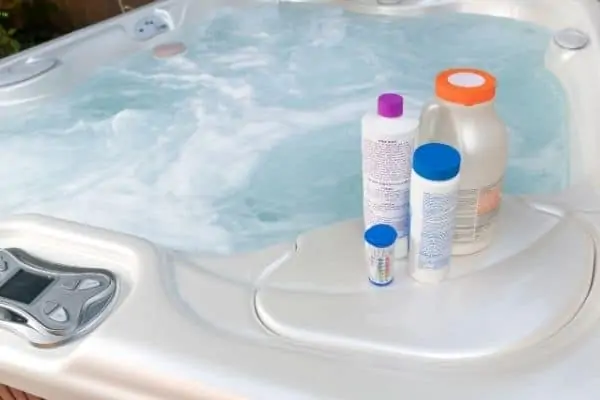

What does spa shock do?
When you shock your hot tub, you clean the water by killing bacteria and other contaminants. This will ensure that you, your family and your guests can take a clean and relaxing soak in healthy water conditions.
Before diving deeper into how to shock your hot tub, it is essential to understand the different shock chemicals that will work for the type of sanitizer you use. By that, I mean chlorine vs. bromine.
What is the best hot tub shock?
Unsurprisingly, chlorine is the most common type of shock used with a chlorine hot tub. There are two main types of chlorine shock: dichlor shock (dichloroisocyanuric acid) and cal hypo (calcium hypochlorite).
Most brands of spa shock contain dichlor, which I recommend. Cal hypo is more suitable for shocking swimming pools.
You can also use a non-chlorine shock, known as an oxidizer. This type of shock allows you to use the tub again much sooner than chlorine shock.
You can use either a chlorine-based or a non-chlorine oxidizer in a bromine hot tub. I would use a non-chlorine oxidizer once a week.
I recommend using SpaGuard Enhanced Spa Shock or SpaGuard Spa Shock-Oxidizer
Hot tub shock – a step-by-step guide
Now that you have picked the product you want to use, it is time to start shocking the hot tub by following these steps:
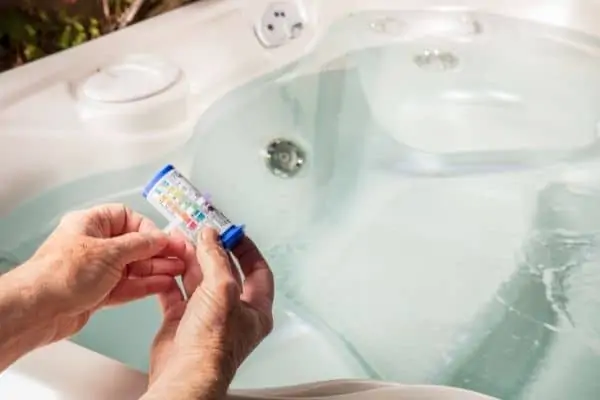
1. Open the cover and turn on the pump
The circulation will move the water around, and when the water is moving, the shock will respond quicker.
2. Check the water condition and pH levels.
To check the water levels in your hot tub, you can use a test strip or test liquid.
One of the readings these will give is the pH (i.e., whether it is acidic or alkaline). The pH level should be between 7.2 and 7.6. If it is above or below this range, you should adjust it before shocking.
3. Mix your shock product
Carefully read the labels that explain how you should mix the shock. Most shocks in the form of chlorine granules need to be pre-mixed. You will normally need to know how many gallons your hot tub holds to determine how much shock treatment to use.
Some spa shocks come in small sachets, which you can sprinkle over the water without premixing. If that is the case, skip this step.
As with all pool and hot tub chemicals, keep them out of the reach of children.
4. Turn on the hot tub pump
You need to ensure that the shock is evenly distributed throughout the hot tub, including the pipes and plumbing, so running the circulation pump will ensure this. Do not turn on the air (bubbles), though.
You should also leave the cover off during this process, as this will allow the gases produced to dissipate. It will also most likely keep the pump running for longer to keep up the temperature. If you have an indoor hot tub, ensure the area is well-ventilated.
5. Pour the mixture in the spa water
Pour the hot tub shock mix around the hot tub. Always do this carefully, as any spilled outside may cause damage.
6. Wait for the shock to do its job
Depending on the type and amount used, the hot tub shock treatment can take 20 minutes to 24 hours to work. See my article How Long to Wait After Shocking.
7. Test the water levels to see if it is safe to get in
Retest the water using a test strip or liquid test and don’t use your hot tub until the chlorine level is back to safe levels of 3ppm or less.
It is that easy, anyone can do it!
Recommended Test Strips
Hot Tub Shock Comparison Table
A quick-reference table can help readers understand the differences between various shock products. This is especially helpful because many spa owners don’t realize there are oxidizing vs. sanitizing shocks and different chemical bases.
| Type of Shock | Active Ingredient | Ideal Usage | Approximate Dosage (per 500 gallons) | Pros | Cons |
|---|---|---|---|---|---|
| Chlorine-Based Shock | Sodium Dichloro-S-Triazinetrione (Dichlor) | – Routine sanitation – Heavy bather loads – Contaminated water | ~1–2 tablespoons | – Powerful sanitizer – Effective against bacteria | – May raise chlorine levels too high – Can affect pH balance |
| Non-Chlorine Shock | Potassium Monopersulfate (MPS) | – Regular oxidation – Removing organic waste – Minimizes combined chlorine (chloramines) | ~2–3 tablespoons | – Won’t raise chlorine levels – Great for regular maintenance | – Not a primary sanitizer – Might not kill all bacteria, must still maintain chlorine/bromine |
| Bromine Shock | Sodium Bromide (or bromine compounds) | – Hot tubs using bromine – Compatible with bromine sanitizing systems | ~1–2 tablespoons | – Effective in bromine-based spas – Helps reactivate bromine | – Limited use if spa relies on chlorine – Might require additional chlorine to establish bromine bank |
Note: Dosage can vary by product brand, hot tub size, and current water conditions. Always check the label for exact instructions.
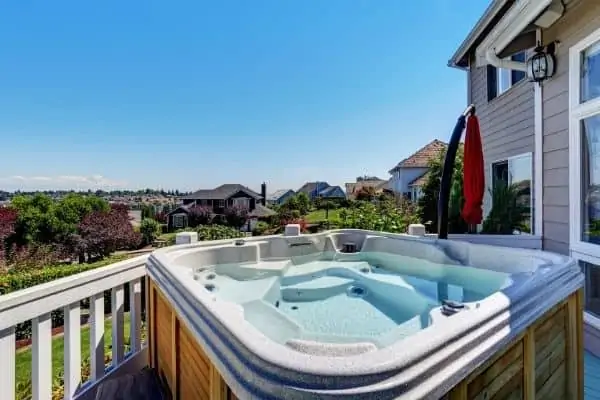
Can you overshock a hot tub?
If you make a mistake with the amount of shock to add to the hot tub, perhaps a mistake in measuring or calculating how much shock, then it is possible to overshock.
This means that the free chlorine levels will be very high. It is far too high even to consider using the hot tub.
The ways to deal with this are:
- Drain the hot tub and refill.
- Partially drain the hot tub and refill. Retest the chlorine level.
- Leave the hot tub cover off and run the pump as much as possible to help dissipate the chlorine. Retest the chlorine levels occasionally and don’t use it until they have dropped to normal levels.
Hot Tub Maintenance Course
I bought Swim University’s Hot Tub Maintenance Course a while after I bought my first hot tub and struggled to maintain it. It was very well spent and has paid for itself many times over the years as I have saved by not needing to use as many chemicals as I did previously.
Listen to our Hot Tub Course Review Podcast:
Hot tub shock FAQs
Before wrapping up this article, I want to quickly answer three more questions that I get frequently. The answers to these questions are helpful when you are planning to shock your hot tub.
Can I use pool shock in my hot tub?
If you only have a hot tub and not a swimming pool, then this probably isn’t something you need to worry about. You can use pool shock in your hot tub, but you must be careful that you use an amount appropriate to the smaller volume of water in the hot tub. Generally, it is recommended that you only use dichlor (dichloroisocyanuric acid) and not cal hypo pool shock (calcium hypochlorite).
How much shock for 250 gallon hot tub?
The amount of shock treatment you put inside a 250-gallon hot tub differs per product. If using chlorine-based shock, you should use approximately 1/16 cup of spa shock. Keep in mind that it is easier to add more later on than to take out. Testing the levels in your hot tub will help you figure out the amount that works in your hot tub.
Do you run jets when shocking a hot tub?
When you add shock to the hot tub, you should run the jets but without the air so that the shock is properly mixed throughout the water and the plumbing.
Can you shock a hot tub with chlorine tablets?
Chlorine tablets invariably also contain cyanuric acid (CYA), a stabilizer used to prevent chlorine from being used up too quickly. It is not suitable as a hot tub shock.
Should you shock a hot tub after filling it?
When you refill your hot tub, although you are adding clear and clean water you will still need to add some form of sanitizer and cleanser.
Read also: Add chlorine to a new hot tub and When and How Often to Shock a Hot Tub
Some last thoughts
Knowing how to shock a hot tub is important to keeping it clean and safe to use. How you shock the spa will determine how clean, clear and uninfected your bathing water will be.
After reading this article, we hope you now understand how to shock a spa, why you shock and what shock is best to use.
You should also learn when to shock.
After all, we all want to get into our spa without cleaning it first!
Other related hot tub articles
How to get sand out of a hot tub
What causes alkalinity to drop in a hot tub?
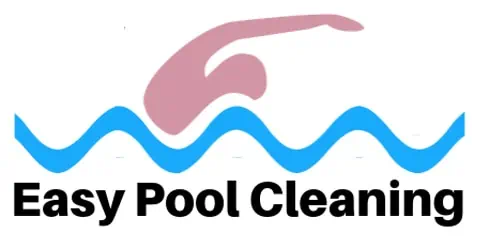




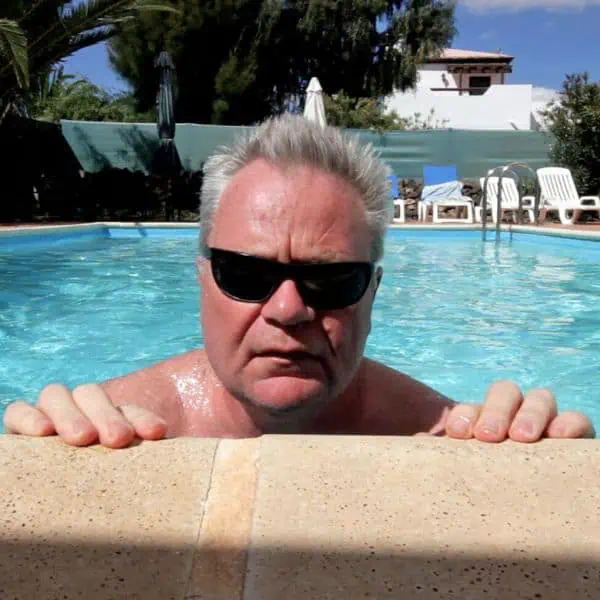


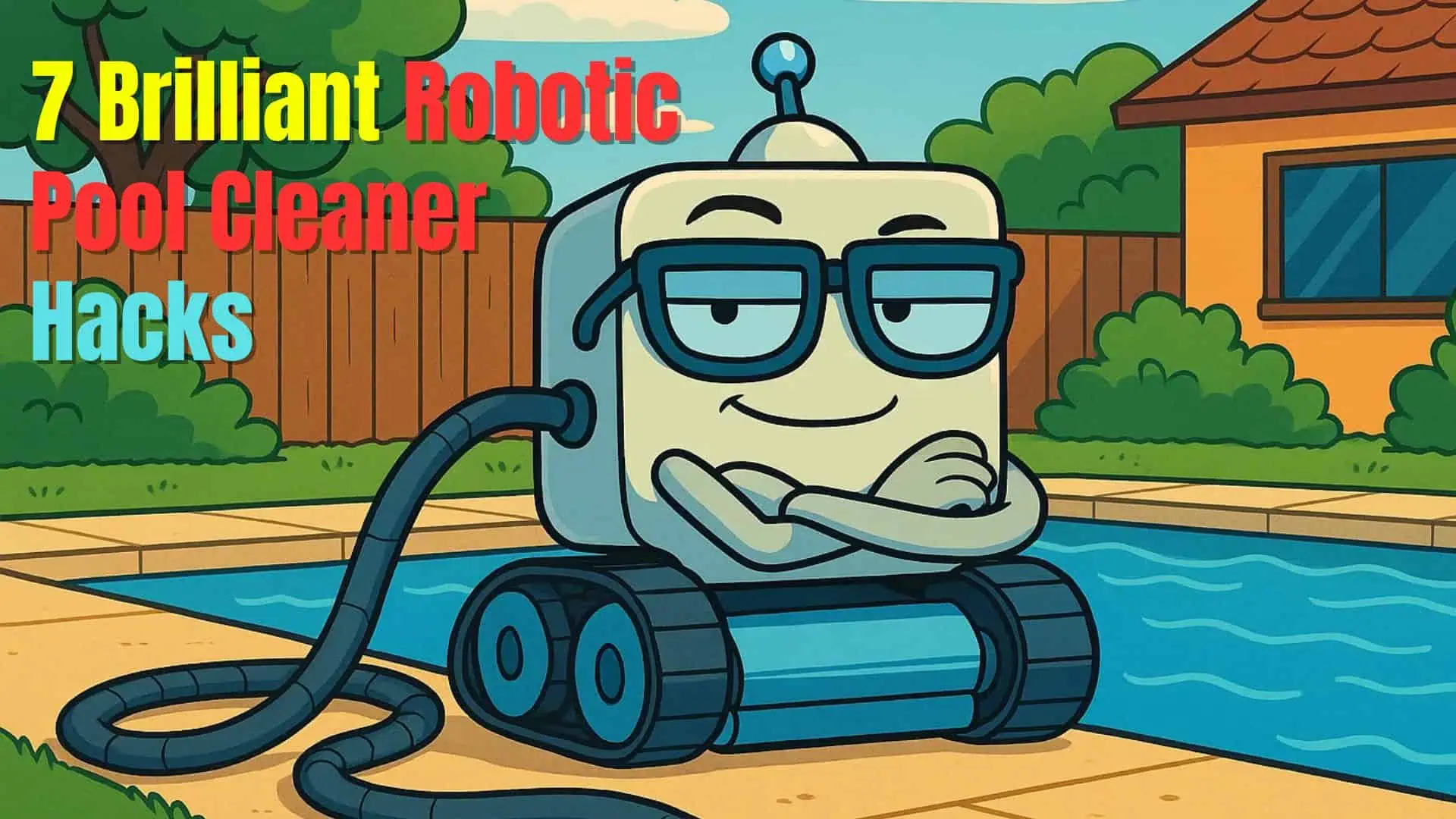
Leave a Reply